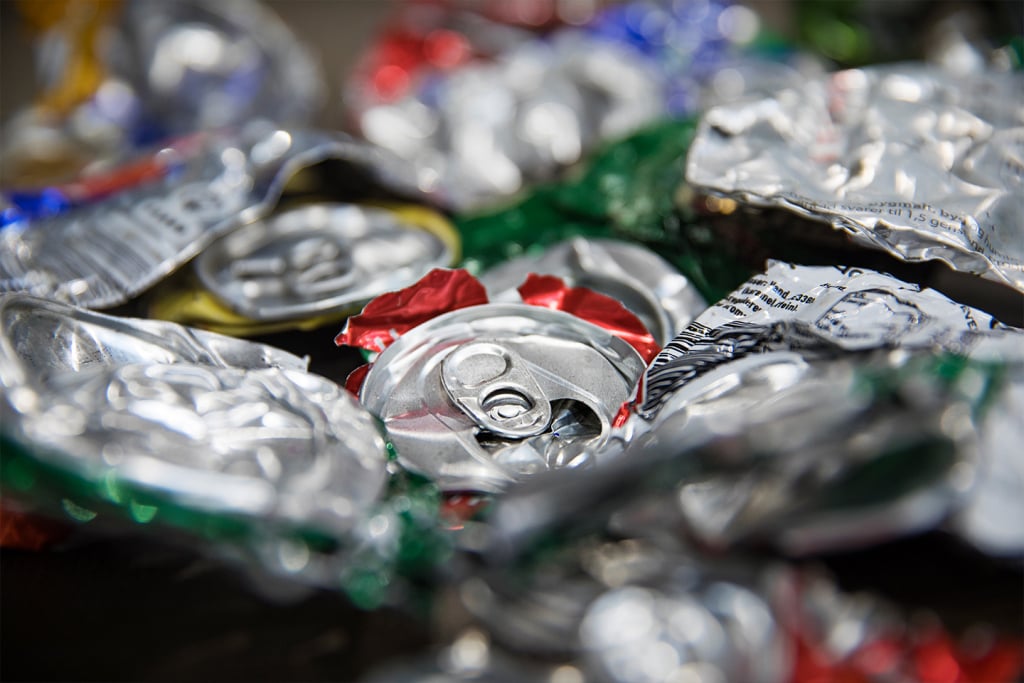About us
We run the Danish deposit system and ensure that disposable beverage packaging made of plastic, aluminum and glass are recycled. This is good for the environment and the climate due to the process saving natural resources and energy.
Dansk Retursystem operates the Danish deposit system, a task we’ve undertaken since 2002. But we do not do it alone, and we credit the Danes with returning nine out of ten bottles and cans with deposits.
The Danish deposit and return system is one of the few areas in which producers and importers pay for packaging to be recycled. Dansk Retursystem operates the system and is a non-profit company with three sources of income:
- Aluminium, glass and plastic from returned bottles and cans are sold to companies that process the material and manufacture new packaging from it. Dansk Retursystem receives the income from the sale.
- About 7 % of all bottles and cans sold are not returned. These unclaimed deposits contribute to operating the deposit and return system and making it more efficient. The 2013 Finance Act required that Dansk Retursystem transfer some of the unclaimed deposits to the state budget over a period of five years.
- Producers and importers of bottled and canned beverages pay an annual fee for marketing beverages on which deposits are payable. This is a political decision enacted by law. The fees vary for each type of bottle or can depending on the volume of the bottle or can and how easy it is to recycle the material.
The fees are calculated each year based on the expenditure of Dansk Retursystem versus the income. The fees are required to solely reflect the exact costs of operating and administering an efficient deposit and return system.
Many actors involved
Consumers, breweries and stores all contribute to recycling bottles and cans.
Thanks to all the actors involved, the Danish deposit and return system is one of the best in the world because the majority of empty bottles and cans are recycled.
Producers, importers and the breweries contribute by selling bottles and cans that can be used again or recycled.
Danes contribute by returning their empty bottles and cans to the system instead of discarding them.
Shops, offices, cafés, restaurants and similar places contribute by receiving the empty bottles and cans and storing them until Dansk Retursystem collects them.
Finally, Dansk Retursystem makes sure that the bottles and cans are sorted, separated and sent to specialized plants that melt the bottles and cans so that the material can be used to make new bottles and cans.
The deposit and return system is a well-oiled rotating cog ensuring that bottles and cans can be used again and again.
The Statutory Order on Deposits defines how the deposit and return system operates.
Denmark’s deposit and return system is regulated politically by a statutory order under the Environmental Protection Act. The Statutory Order on Deposits defines such things as: the beverages and packaging on which producers must place a deposit mark; who has to accept the empty bottles and cans returned by consumers; and how Dansk Retursystem has to manage the system.
Since 2002, Dansk Retursystem has had the exclusive right to operate the deposit and return system, which collects, counts, sorts and separates bottles and cans and sends them for recycling. The exclusive right also imposes a duty on Dansk Retursystem to always be efficient and to keep the costs as low as possible.
Dansk Retursystem therefore puts all its major tasks out for competitive tender to optimize the price and the consideration of both the environment and the working environment. In addition, Dansk Retursystem continually works to make its operations and the collection of bottles and cans as efficient as possible.
The Danish Environmental Protection Agency monitors the Dansk Retursystem’s activities. Dansk Retursystem is evaluated before the exclusive rights are awarded for a new term.
Tenders
Dansk Retursystem is a company subject to European Union (EU) regulations on public procurement. The statutory order that regulates the Danish deposit and return system specifies the obligation to put contracts out to tender.
This means that Dansk Retursystem is required to invite tenders when purchasing goods or services in excess of the threshold values specified by the relevant EU directive.
Current tenders are published in the Official Journal of the European Union. Contact us for more information.







